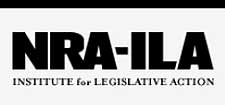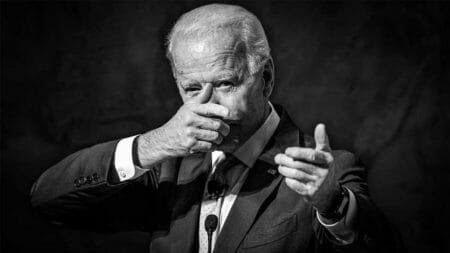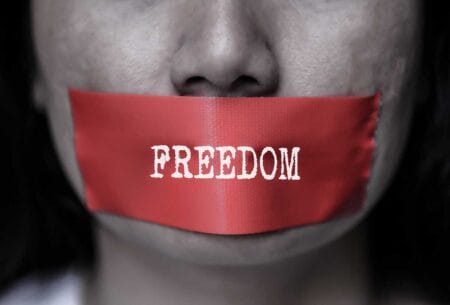
U.S.A. -(AmmoLand.com)- Since the District of Columbia v. Heller decision in 2008, gun control advocates have parsed every word of Justice Antonin Scalia’s opinion for ways in which to continue their campaign against the Second Amendment. Relying on creative interpretations of dicta, these activists try to twist the landmark gun rights ruling into an endorsement of their anti-gun policies.
An example of these efforts is on display in the NRA-supported case New York Rifle & Pistol Association v. Bruen. The case concerns the validity New York’s discretionary carry licensing regime, where law enforcement is tasked with determining if an applicant has “proper cause” to carry a firearm for self-defense.
In the Heller decision, Scalia stated, “nothing in our opinion should be taken to cast doubt on… laws forbidding the carrying of firearms in sensitive places such as schools and government buildings…” Gun control advocates have seized on the “sensitive places” language in an attempt to lend legitimacy to blanket restrictions on the Right-to-Carry for self-defense.
In their brief defending the may-issue licensing regime, New York argued,
New York’s law is a historically grounded approach to protecting sensitive places of the type that every State, the federal government, and this Court have recognized the need to safeguard.
The reply brief from NYSRPA correctly noted,
[the plaintiffs] do not challenge any of New York’s many separate laws prohibiting handguns in specific, sensitive places. They contest New York’s effort to treat virtually the entire Empire State as a sensitive place and to prohibit petitioners from carrying their handguns for self-defense virtually anywhere,
This battle surrounding “sensitive places” loomed large in the briefs. Moreover, a particular supposed “sensitive place” was repeatedly invoked by the state – New York City’s subways.
The state’s brief cited “subways” as “sensitive places.” Moreover, during the November 3, oral arguments, New York Solicitor General Barbara Underwood endorsed the notion that subways are “sensitive places.”
In posing a question to Underwood, Justice Samuel Alito said,
None of these people has a criminal record. They’re all law-abiding citizens. They get off work around midnight, maybe even after midnight. They have to commute home by subway, maybe by bus. When they arrive at the subway station or the bus stop, they have to walk some distance through a high-crime area, and they apply for a license, and they say: Look, nobody has told — has said I am going to mug you next Thursday. However, there have been a lot of muggings in this area, and I am scared to death.
They do not get licenses, is that right?
Defending New York law while responding to Alito, Underwood, in part, stated,
I think the extra problem in Manhattan is that you – your hypothetical quite appropriately entailed the subways, entailed public transit, and there are lots of people on the subways even at midnight, as I can say from personal experience, and the particular specter of a lot of armed people in an enclosed space —
and,
Well, I think the subways, when there are problems on the subways, are protected by the — the — the transit police, is what happens, because the idea of proliferating arms on the subway is precisely, I think, what terrifies a great many people.
The issue of New York’s subways loomed so large, that Justice Elena Kagan appeared to endorse the notion that they are “sensitive places.”
After being questioned by Chief Justice John Roberts as to what might constitute a “sensitive place,” NYSRPA counsel Paul Clement responded with how a location might be analyzed. Clement offered, in part,
One is, you know, restriction of access to the place is something that I think would be consistent with the way government buildings have worked and schools have worked. Not any member of the general public can come in there. They restrict access. With — with or without a gun, if you’re an adult that has no business to be in a school, you’re excluded. So I think that’s a factor that would support treating that as a sensitive place.
Kagan pressed the topic, by asking,
what the Chief Justice is trying to do is figure out how those cash out in the real world. So I’ll give you a few more. New York City subways.
The notion that New York City’s subway system is a “sensitive place,” under any conceivable definition of the term, should be absurd to any person who has had the displeasure of using it. The utterly filthy structure frequently plays host to the most outrageous scenes of crime and human degradation.
However, a recent incident illustrated just how non-sensitive the New York City subway system is in fact and made clear that the state of New York doesn’t consider it a “sensitive place” in practice.
According to police, on February 21 a 43-year-old woman was on a bench in a subway station in the Bronx when a man approached her. The man was carrying a plastic bag filled with human excrement, which he pushed into the woman’s face. An account from the New York Post stated that the man “smashed the vile contents of the bag in her face, and then smeared it on the back of her head.” The entire attack was captured on video.
Police arrested the alleged attacker on February 28 and he was arraigned on March 1. While he was detained, the suspect reportedly joked about his alleged crime. The New York Post reported that he told the police “S–t happens. Haha. This is a s–tty situation. Haha.” The Post also noted that during the arraignment the suspect snapped “F—k you, b—h” to the judge and referred to the victim as a “b—h.”
Despite the atrocious nature of his alleged crime, and outrageous courtroom conduct, the suspect was released without bail.
Two days after being released, the suspect was rearrested on hate crime charges stemming from antisemitic assault last September. According to the Post’s summary of the charges, the suspect allegedly “spat on a Jewish man and chased him down a Brooklyn street, screaming, ‘Come here, you f—king Jew, I am going to kill you.’” The suspect was again released without bail.
A further investigation of suspect’s criminal history showed that he had 44 prior arrests. Moreover, WABC reported,
Authorities say [the suspect] has a history of transit related attacks. On January 7, he allegedly punched a 30-year-man on the subway platform at the 125th Street station at Lenox Avenue in Harlem.
And on February 5, he allegedly punched a 53-year-old man at the Port Authority Bus Terminal.
According to the state of New York, the New York City subway system is too “sensitive” a place for law-abiding citizens to carry a firearm for self-defense. However, the subway is not so sensitive as to prompt the state to incapacitate an individual that is credibly accused of repeated heinous acts of violence in and around the transit system.
This position is ludicrous and untenable. Moreover, it demonstrates that the state is more concerned with restricting the rights of the law-abiding than protecting the public from those who commit criminal violence.
About NRA-ILA:
Established in 1975, the Institute for Legislative Action (ILA) is the “lobbying” arm of the National Rifle Association of America. ILA is responsible for preserving the right of all law-abiding individuals in the legislative, political, and legal arenas, to purchase, possess, and use firearms for legitimate purposes as guaranteed by the Second Amendment to the U.S. Constitution. Visit: www.nra.org








Subways aren’t “a sensitive place” for perps. They know the public is prohibited from carrying weapons.
Imagine if they had to guess who might be carrying & willing to remove their last breath. lol
Think David Goetz.
Bernie Goetz.
I think he meant……… THANKS , Bernie Goetz.
nu yak sub way is the safest place on ert , jst wach out 4 sht shivs and narcs , yea yea thats the trcket …… the state has been turned in to an open sewer ,and they are trying to do the same to Vermont,
They restrict access. With — with or without a gun, if you’re an adult that has no business to be in a school, you’re excluded. So I think that’s a factor that would support treating that as a sensitive place.
When footing the bill and you have NO business being there. I have NO business in footing the bill for someone else irresponsibility.